

Games help learners to work through structured experiences together, within the safety of play and imagination. Games involve simulated characters and situations. They offer opportunities to reflect on choices and consequences. These come in handy when participants face similar situations for real.

Games serve marginalised or learning-challenged individuals particularly well. They are flexible, and use different ways of conveying ideas, so learners with different levels can use their own style of learning and progress at their own pace.

Games use pictures, colours, graphics and other devices to attract and retain interest – especially when the group has low literacy skills or is comfortable in different languages.

Games are easier to facilitate, and are less intimidating than manuals. Game based tools give confidence to hesitant trainers, and enable them to raise difficult issues effectively.

Games enable educators to play at an equal level while still providing facilitation. As soon as a game begins, the traditional hierarchy of the classroom or family is set aside; a useful educational dynamic since the educator or the parent is not likely to be around when the learner makes critical decisions in life.

The relaxed atmosphere of games fosters positive participation. They create a safe space for listening and expression, sharing of ideas, fears, and questions. This makes it easier to address sensitive issues such as sexuality, violence and fundamentalism. Games help overcome the common barriers of discomfort and polarised emotions.
Click on the tiles for more details. These can be produced on demand for projects run by partners





















Personalized Activity Books on Self Exploration
Audience: 10-13 years and 14-17 year olds
Languages: English, Bangla
📚 preview in library
Set of 18 situation cards and 6 guide cards exploring Communication with Parents, Peer Pressure, Assertiveness, Positive Thinking, Stress Management, Conflict Resolution
Audience: Adolescent girls and boys
Languages: English, Bengali, Hindi
📚 preview in library
Board and Discussion Cards for sharing emotional experiences.
Audience: Children, Adolescents
Languages: English, Bengali
📚 preview in library
Flipchart, Cards, Game exploring multiple identities, identity based stereotypes and conflicts
Audience: Youth, Community men and women
Languages: English, Urdu
📚 preview in library
Set pictorial playing cards to build basic gender understanding.
Audience: Children, Adolescents, Adults
Languages: English, Bengali
📚 preview in library
Comprehensive 10 session curriculum with 100 picture cards and a simplified manual to explore gender attitudes.
Audience: Adolescents, Men, Women
Languages: English, Bengali, Hindi
Partners: Oxfam EIO, Jumav Manch and Task Force
📚 preview in library
Playway kit with picture tiles for discussion & monitoring of gender attitudes.
Audience: Community Groups
Languages: English, Hindi
📚 preview in library
Picture cubes to help imagine positive stories for girls.
Audience: Children, Adolescents, Adults
Languages: English, Hindi
Video [3 min] : Storybox
📚 preview in library
4 jigsaw sets, with facilitation guide, on women who have broken stereotypes: Kalpana Chawla, Mary Kom, Bachendri Pal, Kiran Bedi
Audience: Children, Adolescents, Adults
Languages: English, Bengali

Comprehensive playway workshop set with multiple games on gender in the context of womens' enterprises.
Audience: Community based women entrepreneur groups
Languages: English, Hindi

Compendium of games, models and flipcharts exploring Adolescent Reproductive, Sexual Health and Rights.
Audience: Adolescent girls
Languages: English, Bengali, Hindi, +
📚 preview in library
Compendium of games, models and flipcharts exploring Adolescent Reproductive, Sexual Health and Rights.
Audience: Adolescent boys
Languages: English, Bengali, Hindi, +
📚 preview in library
Picture Cards, and facilitators guide, exploring Myths & Rights of Persons with Disability.
Audience: Community Men and Women, Families of Persons living with Disability.
Languages: English, Bengali
📚 preview in library
Series of pictorial booklets covering POCSO (child sexual abuse), Child Labour Act, Early & Child Marriage Prevention Act, Human Trafficking, Cyber safety
Audience: Adolescents, Adults
Languages: English, Bengali, Hindi
📚 preview in library
Comprehensive playway tool with multiple games to explore Child Rights & Role of Youth.
Audience: Children, Adolescents, Adults
Languages: English, Bengali, Hindi
📚 preview in library
Comprehensive pictorial activity on Free Prior and Informed Consent, in the context of development and displacement.
Audience: Community men and women
Languages: English, Hindi, Oriya
📚 preview in library
Comprehensive pictorial activity on high yield rice farming method adapted for specific rural regions.
Audience: Rural and Tribal women farming groups
Languages:English, Hindi
📚 preview in library
Pictorial activity on vegetable farming methods adapted for specific rural regions.
Audience: Rural and Tribal women farming groups
Languages:English, Hindi
📚 preview in library
Activity Book & accessories exploring water, sanitation and hygiene issues.
Audience: Children, Adolescents
Languages: English, Bengali, Hindi
📚 preview in library
Conception Model, part of the Champa kit, being used by adolescents in Kolkata, India

Women's Economic Leadership (WEL) session with Community of Practitioners at Colombo, Srilanka

WEL business simulation game being tested with women leaders in Kiran, Batticaloa, Srilanka

Farm Entrepreneurs playing the extended WEL game in Patna, Bihar

Safal Fasal kit test and demo in Khunti, Jharkhand

Safal Fasal kit being used by women farmers.

Safal Fasal tools integrated with field training of Local Resource Persons.

Identities workshop in Yangon, with youth from all districts of Myanmar

Identities kit being used with community leaders in Pakistan

Identities session using I am One, I am Many kit in Manila, Philippines

Disability kit being used in Kolkata, India

Our Land Our Water workbook in schools, Tanzania
How we used Design Process to innovate since we started in 1994



















